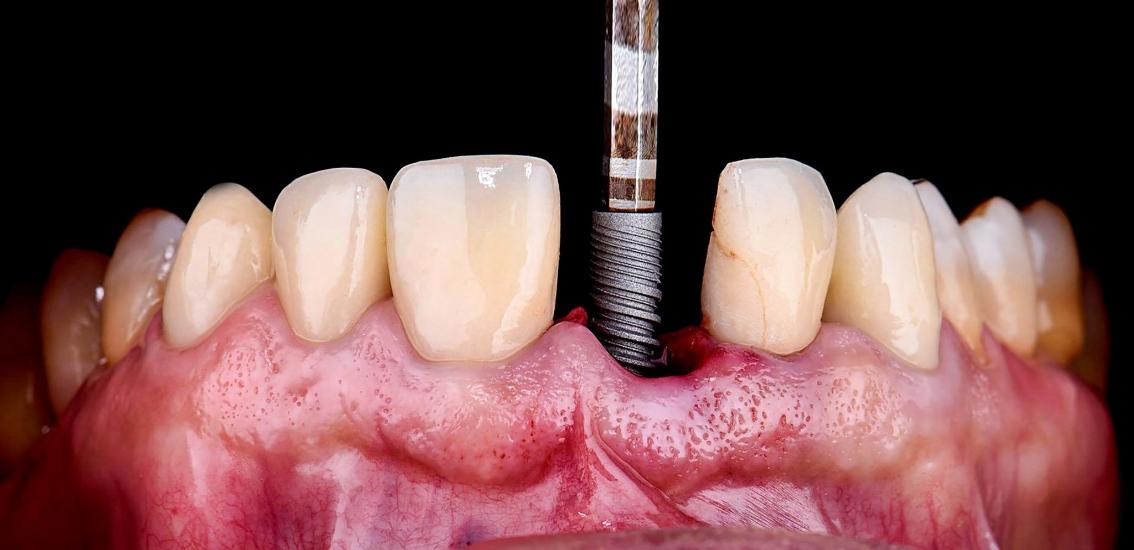Dental implantology are designed to provide a foundation for replacement teeth that look, feel, and function like natural teeth. The person who has lost teeth regains the ability to eat virtually anything and can smile with confidence, knowing that their teeth appear natural and that their facial contours will be preserved.
Dental implantology can replace a single tooth, several teeth or all of them. Dental implants can also be used to anchor a bridge or dentures into place. If you need to have all of your teeth replaced, implant-supported dentures are ideal, providing more stability than traditional dentures and costing less than a complete set of single dental implants.
Just like any surgery, the dental implant procedure will be more successful if you are healthy. That means practicing excellent oral hygiene, eating well and not smoking. Patients must also maintain a significant amount of jaw bone to support dental implants. Discuss your pre-existing medical conditions with your dentist. He or she can best determine if you are a candidate for dental implants.
Apart from Dental Implants, our Oral Surgeon can also help you with:
